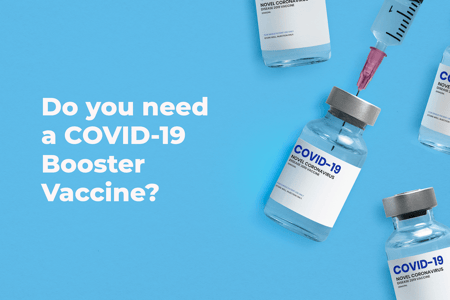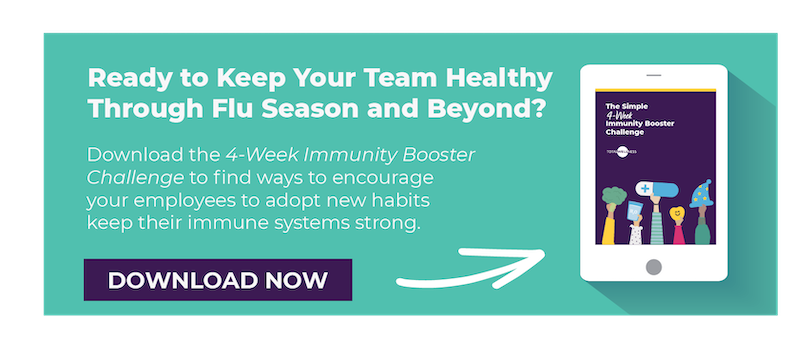
This article was updated on December 3, 2021 based on new recommendations from the CDC.
Thinking you may need the COVID-19 booster shot?
While there’s been a lot of back and forth about whether everyone needs a booster shot, health officials have now confirmed that everyone ages 18 and older should get a booster shot.
This article will cover:
- Who is eligible
- The timeline to wait between the second and third dose
- Where to get the COVID-19 booster shot
- What type of side effects to expect
Share this post with employees who are interested in learning more about the booster and if they need it for full protection.
1. Who Is Eligible for a COVID-19 Booster Shot?
The CDC is strengthening its recommendation on COVID-19 vaccine booster doses. Everyone ages 18 and older should get a booster shot either when they are six months after their initial Pfizer or Moderna series or two months after initial J&J vaccine.You may choose which COVID-19 vaccine you receive as a booster shot. Some people may prefer the vaccine type that they originally received, and others may prefer to get a different booster. CDC’s recommendations now allow for this type of mix-and-match dosing for booster shots.
2. Where can I get a COVID-19 Booster Shot?
If you need help scheduling your booster shot, contact the location that set up your previous appointment. If you need to get your booster shot in a location different from where you received your previous shot, here are some ways to provide a vaccine provider.
- Visit Vaccines.gov to find vaccination providers near you.
- Text your ZIP code to 438829 or call 1-800-232-0233 to find vaccine locations near you in the United States.
- Check your local pharmacy’s website to see if vaccination appointments are available.
- Contact your state health department to find additional vaccination locations in the area.
3. Serious Side Effects Are Rare With Booster Shots
The most commonly reported side effects post-Pfizer-BioNTech booster shot include pain at the injection site and fatigue. In general, side effects are considered mild to moderate. While serious side effects are rare, according to the CDC, it is possible to have anaphylaxis, thrombosis with thrombocytopenia syndrome, myocarditis, and pericarditis. Talk to your physician about any concerns you may have.
4. Individuals Are Still “Fully Vaccinated” Without a Booster
If you’ve gotten your two jabs of the Pfizer-BioNTech or Moderna vaccines, you’re considered fully vaccinated. The same goes for those who received the single J&J/Janssen vaccine. Fully vaccinated status is considered once you’ve hit the two-week mark after your last shot.
COVID-19 Booster Shot Reputable Sources
These days, it can be hard to find the correct, most updated information when it comes to the COVID-19 vaccine. It’s especially challenging when new research comes out all the time as scientists learn how to handle the pandemic.
Consider sharing with your staff the reputable sources below. This will allow them to do their own research and be comfortable navigating scientific sites that focus on hard data.
A few reputable sites to share when it comes to COVID include:
- John Hopkins Medicine
- World Health Organization (WHO)
- S. Food & Drug Administration (FDA)
- Centers for Disease Control and Prevention (CDC)
Providing accurate, reliable resources can help your employees feel more confident in their ability to research health topics independently. It also provides a portal for gaining more knowledge when they learn to navigate sites outside of social media. Better yet, have a local medical doctor or researcher offer a lunch and learn event at your company. Not only will a presenter be able to bring facts to life in a relatable way, but it will make the topic more memorable and digestible for your team.



